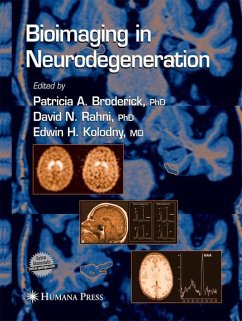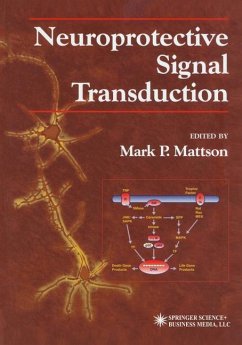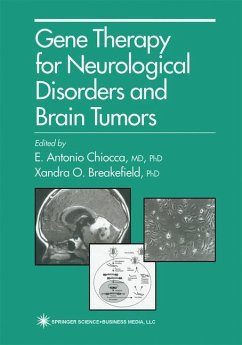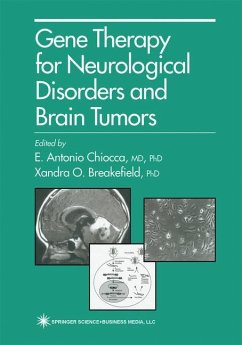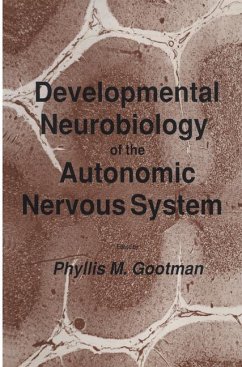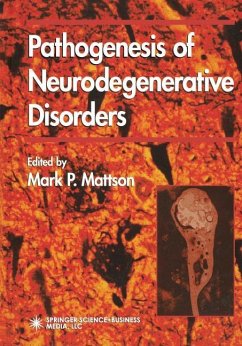
Central Nervous System Diseases
Innovative Animal Models from Lab to Clinic
Herausgegeben: Emerich, Dwaine F.; Dean, Reginald L.; Sanberg, Paul R.

PAYBACK Punkte
77 °P sammeln!
Prominent experimentalists critically review the animal models widely used in developing powerful new therapies for central nervous system diseases. Coverage includes novel uses of animal models of Alzheimer's, Parkinson's, and Huntington's diseases, and studies of aging. Techniques that rely heavily on behavioral analyses, as well as models developed from infusions of neurotoxins and from advances in molecular biology, are thoroughly explicated, as are models developed for more acute neurological conditions, including traumatic brain injury and stroke. Comprehensive and authoritative, Central...
Prominent experimentalists critically review the animal models widely used in developing powerful new therapies for central nervous system diseases. Coverage includes novel uses of animal models of Alzheimer's, Parkinson's, and Huntington's diseases, and studies of aging. Techniques that rely heavily on behavioral analyses, as well as models developed from infusions of neurotoxins and from advances in molecular biology, are thoroughly explicated, as are models developed for more acute neurological conditions, including traumatic brain injury and stroke. Comprehensive and authoritative, Central Nervous System Diseases: Innovative Animal Models from Lab to Clinic offers neuroscientists, pharmacologists, and interested clinicians a unique survey of the most productive animal models of the leading neurological diseases currently employed to develop today's innovative drug therapies.








